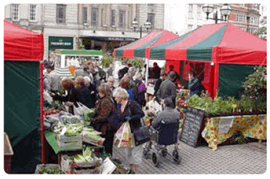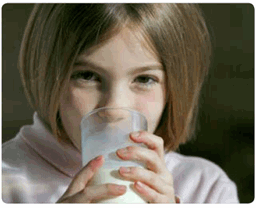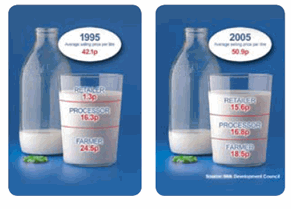



Why Dairy Farming Matters...
By the National Farmers' Union. The importance of the dairy sector in economic terms is not limited to farming as it is important to many upstream and downstream industries, such as animal feed manufacturers and milk processors.To the Economy
- The total turnover of the British dairy industry is £6 billion, around 10% of total food and manufacturing output
- 50,000 farmers and farm workers are employed on dairy farms in the UK
- 34,000 more people work in the milk industry driving tankers, pasteurising milk and packing and distributing dairy products.

Britain’s dairy industry is diverse, ranging from small farmhouse makers of cheese, yogurt and ice-cream through to big, high-tech super-dairies that produce bottled milk and cheese for major supermarket chains.
Often large dairies are located close to our major cities or in the main dairy farming areas like the South West, Wales and the North West, and are a major employer within their immediate locality.
To the Countryside and Environment…
- Dairy cattle grazing in fields are an important feature of the British countryside, one of our greatest national treasures, attracting one billion day trips a year
- Grazing animals are important to the vegetation structure of pasture land through their selective grazing, trampling and manure
- There are 500,000km of hedgerows in England and Wales and farmers are devoting more time to maintain them than ever before. 5
Dairy farming has a postive impact on the environment and countryside. Many of the hedgerows that are such an important and distinctive component of landscape and biodiversity, owe their existence to the need to divide grassland into conveniently-sized grazing pastures for dairy cattle. As well as providing shelter for livestock, these hedgerows create an ideal habitat for many of our farmland bird and wildlife species.
Britain’s dairy farmers take climate change seriously. Since 1990 greenhouse gas emissions have been cut by 15% and methane emissions, often negatively associated with livestock, have fallen by 13%.
The NFU is committed to ensuring that farming is part of the solution to climate change, and strongly supports research aimed at reducing methane emissions from livestock farming.
Why Dairy Farming Matters to Local Communities…

Dairy farming is a way of life for many local communities across the UK, particularly in the wetter, western counties. In these areas, dairy farmers are an integral part of the local economy. The farmers and their families help protect the local environment, take part in parish councils and school governance boards, sustain local shops, markets and post offices and provide employment on their farms for other members of the community.
In addition to this, every dairy farm has a much bigger economic multiplier effect, providing work for local vets, mechanics, feed suppliers and a whole range of other suppliers.
Why Dairy Farming Matter to the Consumer

Milk and dairy products play an important role in a healthy, balanced diet. They are rich sources of calcium which is easily absorbed by the body. This mineral, along with other nutrients present in dairy foods, such as protein, magnesium and phosphorus, is essential to build and maintain strong bones.
While the teenage years are seen as a window of opportunity to build strong bones, having a good calcium intake throughout life is important for keeping bones healthy. Many people, particularly teenage girls, have diets low in calcium and therefore have an increased risk of developing osteoporosis (brittle bone disease) in later life.
One of the easiest ways to meet your daily calcium requirement is to consume three portions of milk, cheese and dairy products a day (3-A-Day).
The Red Tractor Logo signifies that the product has been produced in Britain to high standards and has been rigorously inspected from farm to supermarket shelf.
What are the problems?

The difficulties of the dairy industry result from a number of factors, but particularly the price of milk paid to dairy farmers. This has been falling steadily since the mid-1990s. In 2006 the average price paid to farmers was a mere 18 pence per
litre, compared to an average retail price of 53 pence per litre. Research showed that in 2005, retailers had 31% of the share of retail price - over ten times the share they had back in 1995.
The situation is particularly stark if compared with the cost of milk production. It has been estimated that it costs farmers, on average, 21 pence to produce each litre of milk, so most dairy farmers are operating at a loss.
This is not a sustainable position. Ultimately, it will only lead to lower UK milk production, higher imports, more food miles and less food security.
What can consumers do?
Ultimately, it will be the consumer who determines the fate of Britain’s dairy industry. Not even the biggest and most powerful supermarket can afford to ignore the wishes of its customers. So, if you value your dairy farmers and the contribution that they make to the economy, here are some ideas on what you can do to help:
- Keep drinking milk and eating dairy foods
- Buy British dairy products
- Fill in a comments card at your local supermarket and ask what they are doing to secure the future of Britain’s dairy farmers.
December 2007


